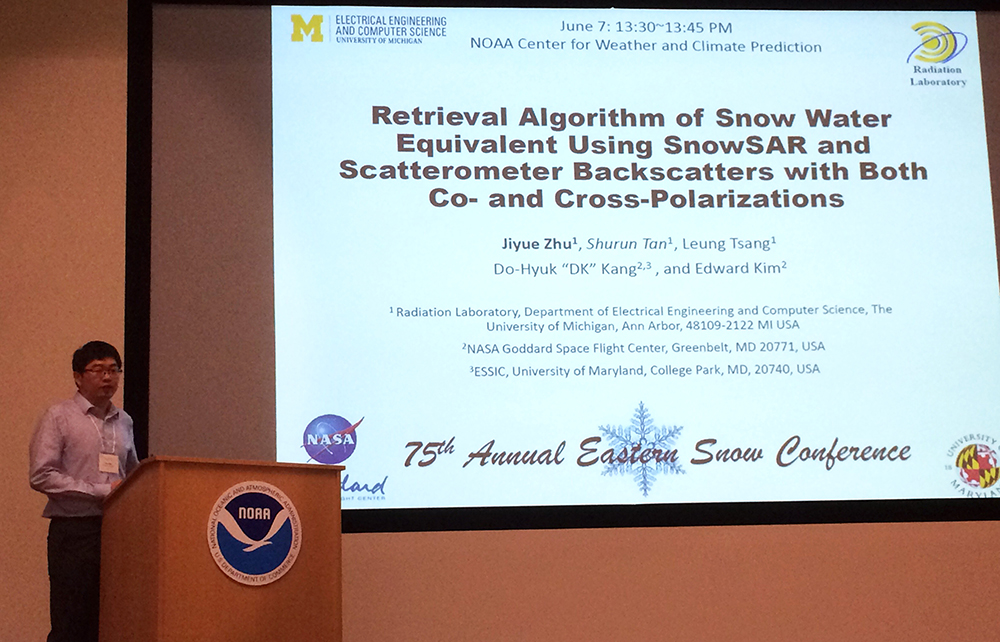Jiyue Zhu awarded Wiesnet Medal for improved snow algorithms
An award-winning method will help us better understand how much snow is on the ground.

 Enlarge
Enlarge
Jiyue Zhu, a PhD student advised by Professor Leung Tsang, won the Wiesnet Medal for best student paper at the 75th Eastern Snow Conference for his work, “Retrieval Algorithm of Snow Water Equivalent Using SnowSAR and Scatterometer Backscatters with Both Co- and Cross-Polarizations.”
The Eastern Snow Conference brings together scientists to discuss their latest research on global snow and ice. These are important topics for researchers to study as water resources and as they relate climate change.
Zhu focuses on how to use synthetic aperture radar (SAR) to retrieve snow information, such as depth and snow water equivalent. He explores what kind of frequency and polarization is needed to build the most accurate measurement instruments, how to improve the sensitivity of the radar signal, and how to improve the process of using radar signals to capture data only on snow, and not noise such as forests or structures, through the use of algorithms.
Zhu’s work on algorithms, and specifically those measuring snow water equivalent, are the subject of Zhu’s award winning paper. Snow water equivalent is a parameter to measure snowpack, and is simply how much water would result if you melted all the snow on the ground in an area. To calculate this, both depth and density of the snowpack are required.
Zhu’s algorithm combines multiple frequency bands and polarizations from radar measurements to better measure snow water equivalent. One frequency (10 GHz) is susceptible to include too much noise in the form of the ground under the snow, while other frequencies (13 GHz and 17GHz) are susceptible to errors when snow is very thick. Processing data from all bands, however, helps calculate a more accurate snow water equivalent. The algorithm’s predicted snow water equivalents had a root-mean-square error of less than 30mm when compared to actual measurements.
Zhu earned a master’s degree from Southeast University in Nanjing, China, before beginning his doctoral studies at U-M.
 MENU
MENU 
